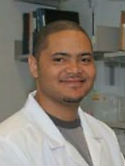An increase in reactive oxygen species underlies neonatal cerebellum repair Journal Article
| Authors: | Pakula, A.; El Nagar, S.; Bayin, N. S.; Christensen, J. B.; Stephen, D.; Reid, A. J.; Koche, R. P.; Joyner, A. L. |
| Article Title: | An increase in reactive oxygen species underlies neonatal cerebellum repair |
| Abstract: | The neonatal mouse cerebellum shows remarkable regenerative potential upon injury at birth, wherein a subset of Nestin-expressing progenitors (NEPs) undergoes adaptive reprogramming to replenish granule cell progenitors that die. Here, we investigate how the microenvironment of the injured cerebellum changes upon injury and contributes to the regenerative potential of normally gliogenic-NEPs and their adaptive reprogramming. Single-cell transcriptomic and bulk chromatin accessibility analyses of the NEPs from injured neonatal cerebella compared to controls show a temporary increase in cellular processes involved in responding to reactive oxygen species (ROS), a known damage-associated molecular pattern. Analysis of ROS levels in cerebellar tissue confirms a transient increase 1 day after injury at postnatal day 1, overlapping with the peak cell death in the cerebellum. In a transgenic mouse line that ubiquitously overexpresses human mitochondrial catalase (mCAT), ROS is reduced 1 day after injury to the granule cell progenitors, and we demonstrate that several steps in the regenerative process of NEPs are curtailed, leading to reduced cerebellar growth. We also provide preliminary evidence that microglia are involved in one step of adaptive reprogramming by regulating NEP replenishment of the granule cell precursors. Collectively, our results highlight that changes in the tissue microenvironment regulate multiple steps in adaptive reprogramming of NEPs upon death of cerebellar granule cell progenitors at birth, highlighting the instructive roles of microenvironmental signals during regeneration of the neonatal brain. |
| Keywords: | regeneration; oxidative stress; cells; ros; level; granule cell progenitors; nestin-expressing progenitors; sensitive periods; neps |
| Journal Title: | eLife |
| Volume: | 14 |
| ISSN: | 2050-084X |
| Publisher: | eLife Sciences Publications Ltd. |
| Date Published: | 2025-08-12 |
| Start Page: | RP102515 |
| Language: | English |
| ACCESSION: | WOS:001549183000001 |
| DOI: | 10.7554/eLife.102515 |
| PROVIDER: | wos |
| PMCID: | PMC12342822 |
| PUBMED: | 40792869 |
| Notes: | Article -- MSK Cancer Center Support Grant (P30 CA008748) acknowledged in PubMed and PDF (Slight typo) -- MSK corresponding author is Alexandra Joyner -- Source: Scopus |
Altmetric
Citation Impact
BMJ Impact Analytics
Related MSK Work








